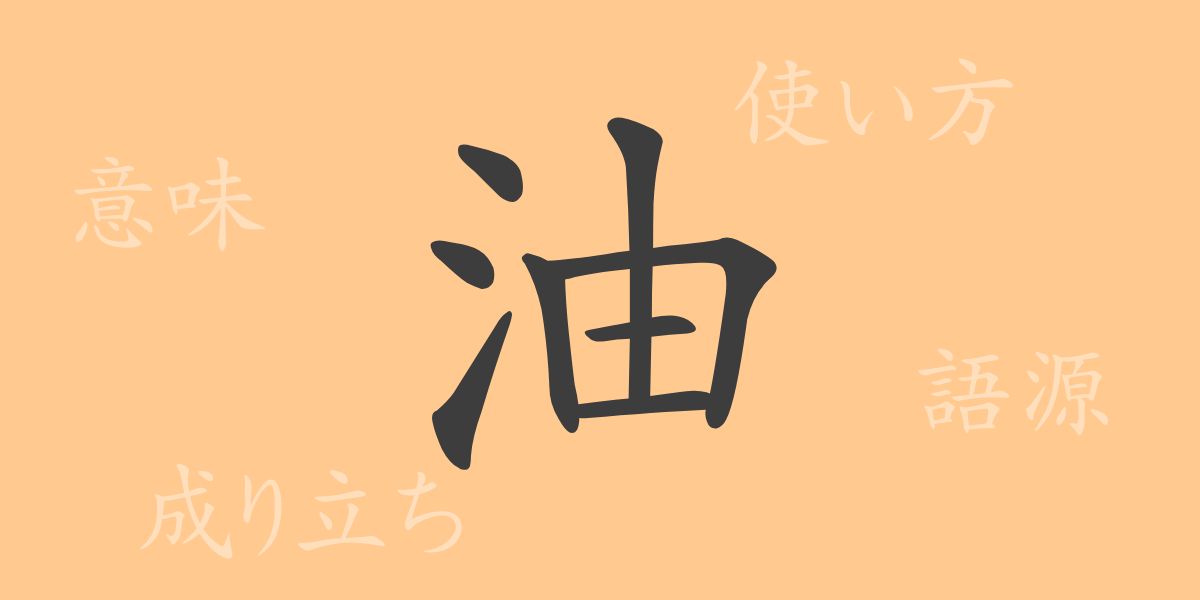The word “油” (abura) is deeply rooted in Japanese culture and daily life. Not only is it an essential element in culinary culture, but it also appears frequently in language. In this article, we will delve into the 常用漢字(jouyou kanji) “油” (abura), exploring its origins, meanings, usages, and even the idioms and proverbs it appears in. Why not deepen your knowledge about “油” (abura), a word you may use casually in everyday life?
The Origins of 油 (abura)
The kanji “油” (abura) originated in ancient China, initially referring to the fats used in cooking and lighting lamps. It was originally a combination of the radical “酉” (you) and the pictographic element for “water” (水, sui), symbolizing liquid fat. Over time, its shape and meaning evolved, eventually settling into the kanji “油” (abura) that we know today.
The Meaning and Usage of 油 (abura)
The kanji “油” (abura) primarily refers to a smooth, viscous liquid extracted from plants or animals. Its uses range from a condiment and heat transfer medium in cooking to a lubricant for machinery and an ingredient in beauty products. Additionally, it is used metaphorically, such as in the phrase “油を売る” (abura wo uru), meaning to waste time doing something else.
Reading, Stroke Count, and Radical of 油 (abura)
The kanji “油” (abura) has several readings in Japanese.
- Readings: In on’yomi (音読み), it is read as “ユ” (yu), and in kun’yomi (訓読み), it is read as “あぶら” (abura).
- Stroke Count: The kanji “油” (abura) consists of 11 strokes.
- Radical: The radical is “水” (sui), but it often appears on the left side in the form of “氵” (sanzui).
Idioms, Idiomatic Expressions, and Proverbs Using 油 (abura)
There are various idioms, idiomatic expressions, and proverbs in Japanese that include “油” (abura). For example, “油を絞る” (abura wo shiboru) means to work very hard, and “油断大敵” (yudan taiteki) warns that negligence can lead to great failure. Additionally, “油が乗る” (abura ga noru) describes a situation progressing smoothly or a person being in their prime. These expressions reflect Japanese life and psyche.
Summary of 油 (abura)
The kanji “油” (abura) has been closely linked to our lives from its origins to the present day. It is a crucial element supporting culinary culture and is used in various forms in language. We hope this article has helped you discover the multifaceted aspects of “油” (abura), a word you use daily. Enjoy exploring the rich world of “油” (abura) even further.

























